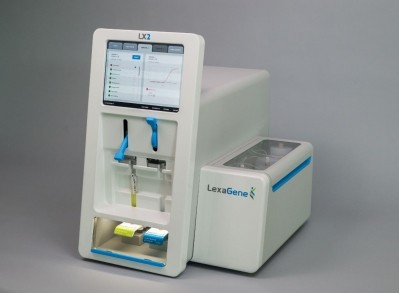Campden BRI bridging the knowledge gap on food borne viruses

The research group is inviting food manufacturers to join the initiative. The project aims to provide insight on evolving data sets regarding heat treatments for the control of viruses in foods. It will also assess water treatments that can be used to deliver effective treatment of irrigation water.
“It will provide a baseline to work from which companies can use to formulate strategies to reduce the risk of infectious viruses,” Martin D’Agostino, Campden BRI virus expert, told FoodNavigator.
‘Still a lot of unknowns’
Foodborne viruses have been linked to some significant public health issues in recent years. For instance, D’Agostino pointed to a 2012 Norovirus outbreak in Germany when nearly 12,000 people (mainly schoolchildren) became ill after consuming desserts prepared with contaminated frozen strawberries. Hepatitis A outbreaks have been associated with frozen fruits and other salad vegetables and sporadic hepatitis E outbreaks have occurred due to the consumption of raw or minimally processed pork products.
However, currently, there is less information available about the control measures needed to reduce or eliminate hazards produced by foodborne viruses than there is for bacterial pathogens. Campden BRI hopes to address this blind spot.
“There are still a lot of unknowns regarding foodborne viruses, but we are confident that continually adding to the data which is available will be helpful to food manufacturers,” D’Agostino said.
“There has been increasing awareness about the role of food in the spread of viral illness. With regards to risk, it depends which foods are affected. Foodborne viruses pose the biggest risk on ready-to-eat foods. They are particularly associated with fresh and frozen produce, including salad leaves and soft fruits. Shellfish such as oysters are commonly associated with norovirus contamination.”
Testing methodology challenge
One of the primary reasons for the knowledge gap between prevention measures for viral and bacterial illnesses in food is the difficulty of testing for viruses, D’Agostino explained.
“Standard methods for detection of these viruses in foods have only recently become available. Less is known about food virus control measures because, unlike bacteria, they cannot be easily cultured in the laboratory. This means we are unable to perform routine tests such as heat resistance experiments on them. Instead, we have to rely on surrogate viruses (which can be cultured and are similar in structure and transmission characteristics as the target viruses).”
Campden BRI will overcome this challenge by utilising culturable surrogate organisms similar to the viruses that cause illness in humans (bacteriophages similar to Norovirus, hepatitis A and Murine norovirus).
The project will be steered by the club members and will focus on experiments using heat treatments that are relevant to the food industry, to see if they provide effective inactivation of viruses.
The project is due to start at the beginning of November and will last one year. Participating companies will then be able to use the findings for their own commercial purposes.
























